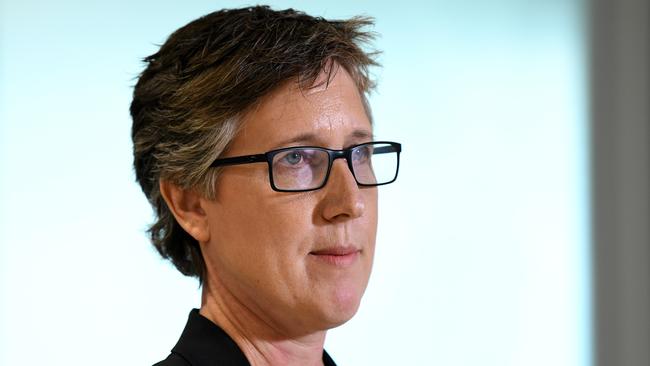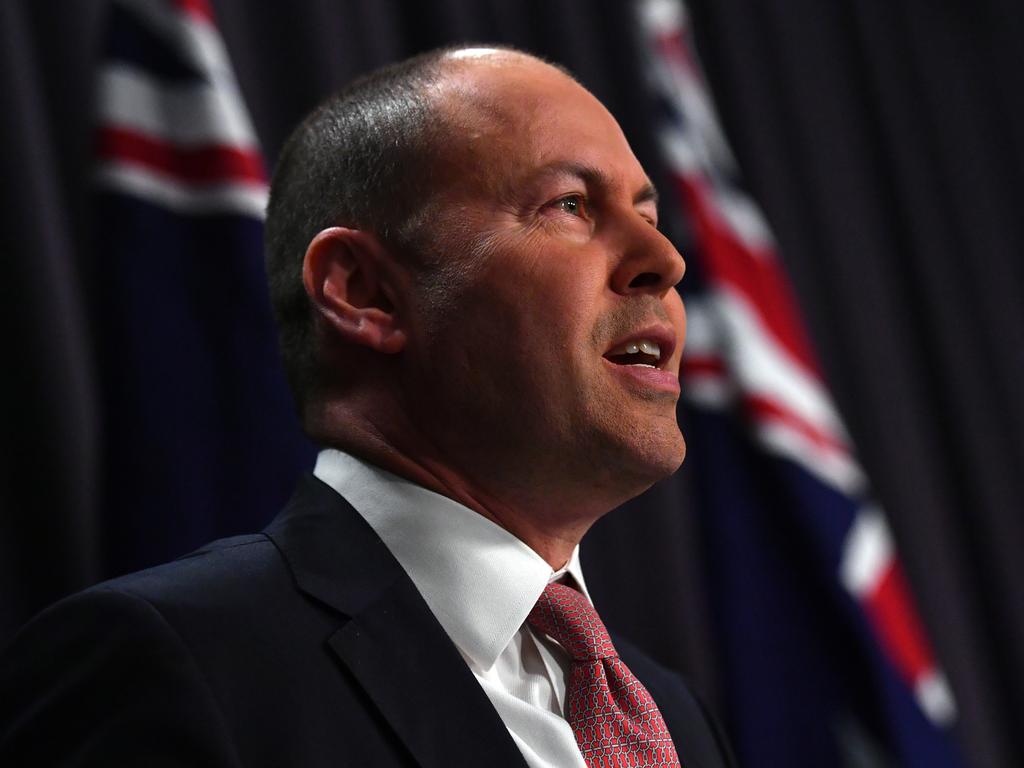Coalition faces backlash over jobs shake-up
Employers will be given more power to bypass a key safeguard over pay and conditions under changes to enterprise bargaining laws.

Employers will be given more power to bypass a key safeguard over pay and conditions under changes to enterprise bargaining laws that have set up a showdown between the Coalition and unions.
The government proposal was condemned by ACTU secretary Sally McManus, who said unions would “ferociously” campaign against the changes she labelled the worst attack on workers since Work Choices.
Under the industrial relations changes, backed by business, the Fair Work Commission will have greater ability to approve deals that do not comply with the Fair Work Act’s better-off-overall test.
The commission will be able approve agreements that do not comply with the test by taking into account the views and circumstances of parties, COVID-19 impacts and the extent of support for the agreement.
Industrial Relations Minister Christian Porter said given many industries were still reeling from the impacts of the pandemic, it made “good sense for the commission to be able to consider agreements that don’t meet the BOOT if there is genuine agreement between all parties, and where doing so would be in the public interest”.
“This measure will help to save jobs by giving those businesses that are still in some form of distress access to vital flexibilities while they recover. Placing a two-year time limit on such agreements will also ensure workers are not disadvantaged,” he said.
The new provisions, which would apply for two years, contrast with the existing law that generally requires enterprise agreements to meet the BOOT before they can be approved. Under the BOOT, the commission must be satisfied that each award-covered employee and each prospective award-covered employee would be better off overall under the agreement compared to the relevant award. While the commission can currently approve an agreement that does not pass the BOOT if it is due to “exceptional circumstance” and not contrary to the public interest, the government proposal would give the commission greater discretion to approve an agreement that is not BOOT compliant.
Ms McManus said the government had not consulted unions during the industrial relations working group process about the proposal she said would allow agreements to be reached that cut wages and fall below the safety net.
“It’s outrageous,” she said. “It’s exactly the opposite to what we should be doing as a country. It will hurt working people and it was not discussed in the working groups at all. This comes out of the blue.”
She said the changes were the biggest attack on pay and conditions since Work Choices and unions would campaign to have them dropped by the government.
“The last time this happened was during Work Choices …. and we still have agreements that are still in place 13 years later. Over a two-year period just about every agreement in the country will come up for expiry and employers will be rushing to use these provisions. It’s extremely concerning and needs to be rejected.”
Australian Chamber of Commerce and Industry chief executive James Pearson said the proposal was “critical to keeping businesses trading rather than insolvent, and keeping people in work and off the unemployment queues”.
Australian Industry Group chief executive Innes Willox said there were longstanding provisions in the Fair Work Act allowing enterprise agreements which do not pass the BOOT to be approved in very limited circumstances.
“During the recovery from the pandemic, it is important that the Fair Work Commission has increased discretion to approve enterprise agreements which do not pass the BOOT, in genuine and limited circumstances where approval of the agreement is in the interests of all parties,” he said.
Under other key changes, the government will prevented hypothetical arrangements from having to be considered under the BOOT, and restrict intervention at the approval stage to employees and bargaining representatives unless there were exceptional circumstances.
The current prescriptive requirements for assessing whether an agreement is “genuinely agreed” would be replaced by a test that considers the substance of the agreement.
As previously reported by The Australian, the commission will generally be required to approve agreements within 21 days.
Mr Porter said the government had sought to address “additional union concerns” by proposing that agreements struck before the Fair Work Act cease by July 2022, and a review of low paid bargaining provisions be conducted.








To join the conversation, please log in. Don't have an account? Register
Join the conversation, you are commenting as Logout